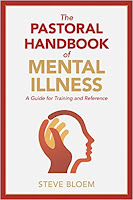This is a re-post
Copy right, 2014, Steve Bloem
Schizo-affective disorder symptoms vary from person to person. People who have the condition experience psychotic symptoms — such as hallucinations or delusions — as well as a mood disorder. The mood disorder is either bipolar disorder (bipolar-type schizo-affective disorder) ,or depression (depressive-type schizo-affective disorder).
Psychotic features and mood disturbances may occur at the same time or may appear on and off interchangeably. The course of schizo-affective disorder usually features cycles of severe symptoms followed by a period of improvement, with less severe symptoms.
Signs and symptoms of schizo-affective disorder may include, among others:
- Delusions — having false, fixed beliefs
- Hallucinations, such as hearing voices
- Major depressed mood episodes
- Possible periods of manic mood or a sudden increase in energy and behavioral displays that are out of character
- Impaired occupational and social functioning
- Problems with cleanliness and physical appearance
- Paranoid thoughts and ideas
When to see a doctor
If you think someone you know may have schizo-affective disorder symptoms, you should tell that person about your concerns. Although you can't force someone to seek professional help, you can offer encouragement and support and help your loved one find a qualified doctor or mental health provider.Expression of suicidal thoughts or behavior may occur in someone with schizo-affective disorder. If you have a loved one who is in danger of committing suicide or has made a suicide attempt, make sure someone stays with that person. Call 911 or your local emergency number immediately. Or, if you think you can do so safely, take the person to the nearest hospital emergency room.
The exact cause of schizo-affective disorder is not known. A combination of factors may contribute to its development, such as:
- Genetic links
- Brain chemistry
- Brain development delays or variations
- Exposure in the womb to toxins or viral illness, or even birth complications
Please see my new book, The Pastoral Handbook of Mental Illness's: A Guide for Training and Reference https://sbloemreflections.blogspot.com/2018/07/why-did-i-write-pastoral-handbook-of.html

No comments:
Post a Comment
Please feel free to respond to my blog. I value your opinion.